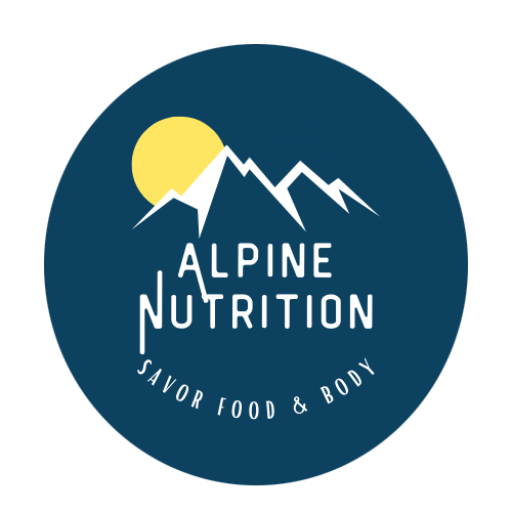If you see messages on social media about intuitive eating being “the hunger-fullness diet” or the “eat whatever you want, whenever you want plan,” you’re not getting the full story. Let’s break down the differences between gentle nutrition and dieting.
Gentle nutrition and intuitive eating are slightly different after 40
Dieting is specifically designed to help you lose weight. That’s it. The messaging might get packaged as wellness by promising to reduce inflammation, increase insulin sensitivity, or get lean. Underneath those wellness claims, there’s also the promise (hope) you’ll lose weight if you follow the diet’s rules. Play the game by its rules and you get the promised results (weight loss). Maybe. Hopefully.
If you don’t get the promised results, it’s assumed you didn’t play by the rules. It’s your fault. Frustrated, you go back to eating “normally,” until you hate your body again, and decide to try a new game, with new rules (a different diet).
This is also called the diet cycle. The more times you’re on a diet, and then off a diet, your weight fluctuates up and down. Until you hit 40. Then no matter how many new diets with different rules you try, your weight doesn’t budge. Now what?

How is gentle nutrition and intuitive eating different than dieting?
If you’re like many of the women I work with, you know the diet cycle doesn’t work in the long term – even when you had marginal success losing weight over the years. So, you want to try something different – like intuitive eating.
At first, the beginning principles of intuitive eating feel easy. Reject the diet mentality. Make peace with food. Honor hunger. Challenge the food police. The newfound freedom you experience with food is amazing! Until it’s not – you might eat beyond comfortable fullness regularly, your clothes don’t fit the same way, and maybe your metabolic lab values like blood sugar, cholesterol, and blood pressure increase. Now what? Wasn’t intuitive eating supposed to be better than dieting? Why do you feel worse?
The messy middle of intuitive eating is knowing you no longer want to diet. You enjoy freedom with food, but you’re concerned about your health. Do you have to diet to be healthy?
Nope. Intuitive eating is dramatically different than dieting because of the last principle of intuitive eating, gentle nutrition.
When I describe gentle nutrition to clients and Midlife Feast Community members, I say it’s a “combination of honoring hunger, satisfaction, and fullness combined with body respect and acceptance.”
You need to know how to feel and honor your subtle hunger and fullness cues. It’s also important to know what qualities of food you find satisfying so you can make food choices by leading with satisfaction instead of food rules.

When you’re over 40, it’s important to respect and accept your body – even when it feels hard.
This is why compassionate curiosity is important. It helps you understand how body size, shape, mobility, and metabolic health change as a result of the menopause transition (perimenopause).
When you shift your mindset away from trying to fix your body; which is what diet culture teaches you, and towards acceptance, you’re more likely to make health-promoting behavior changes independent of weight loss. You adopt an expansive mindset instead of worrying about what you shouldn’t be eating.
Dieting and diet culture teach you to think about food in a contractive way – what shouldn’t you eat? Gentle nutrition asks what do you want to eat?
What food would be satisfying right now? What do you want to add to your meal or snack to feel more focused, energized, or calm and relaxed?
The expansion mindset focuses on what can you add to meals and snacks instead of what you have to give up or eat less of. Let’s be honest, once you hit 40, you’ve given so much of yourself to other people and causes over the years. It’s time to focus on yourself and your needs.
Depending on your health concerns, there might be foods you want to have in combination with other foods. For example, if you’re concerned about blood sugar, instead of saying you can’t eat refined or simple carbs, think about adding protein, fiber, and healthy fats anytime you want foods like white pasta, cookies, or sweets. Eating protein, fiber, and healthy fats with simple carbs helps keep your blood sugar stable by slowing the digestion and absorption of the carbs.

When it comes to gentle nutrition and intuitive eating in midlife, focus your energy on adding more protein (without being excessive), fiber, whole grain carbs, magnesium for sleep, foods rich in omega-3 fatty acids, and iron if you have heavy periods. You don’t need to track or measure your food, calories, or macros. Instead, build trust with your body.
As you reject the diet mentality and honor hunger, satisfaction, and fullness, you create body trust. With body trust, you’ll know how much food you need and when. You won’t need external rules or measurements to tell you how to feed yourself.
If you’re still not convinced gentle nutrition is different from diet culture,
listen to this Savor Food and Body podcast interview with Lynn one of my clients.




